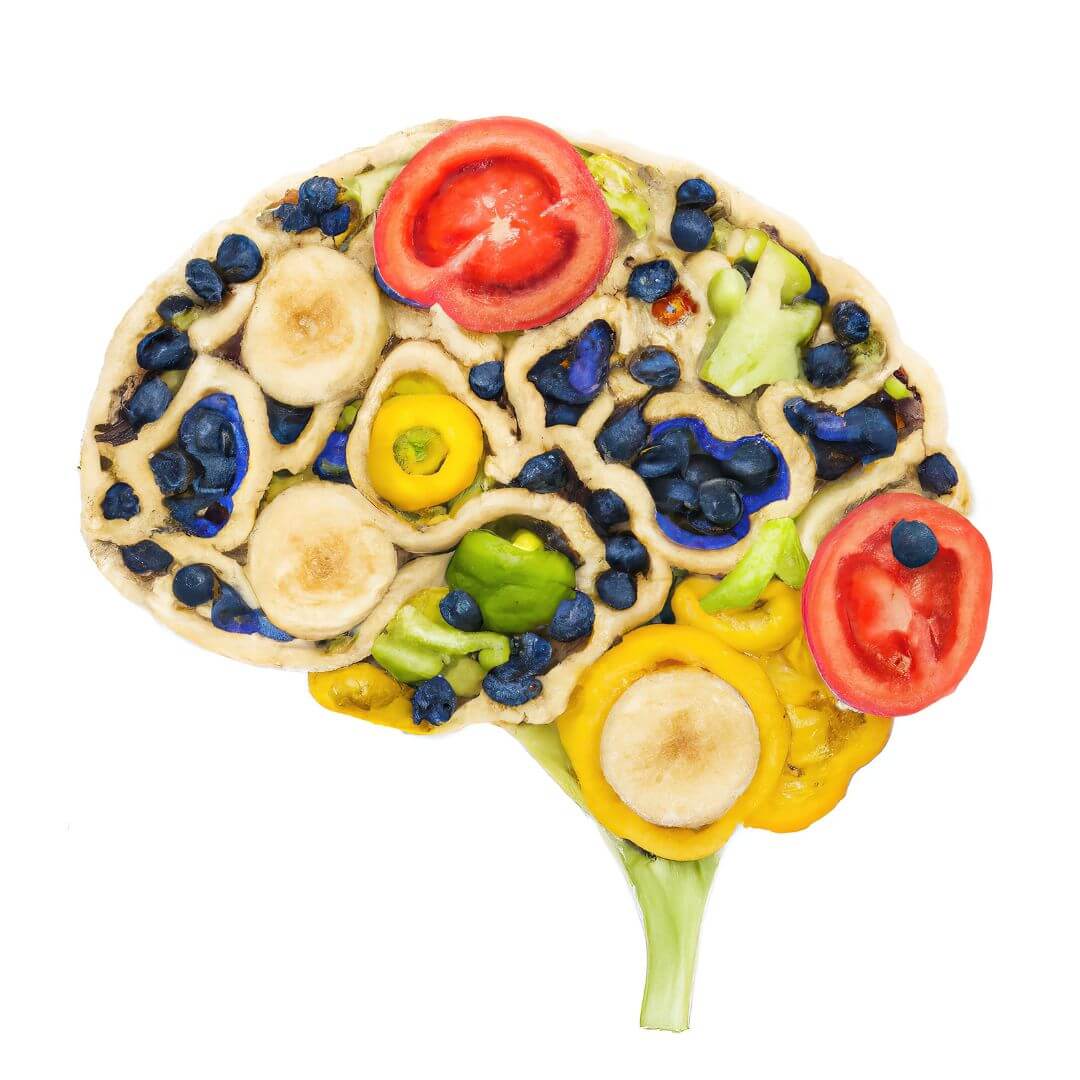The food we consume every day doesn’t just fuel our bodies – it fuels our minds as well.
Eating a diet full of processed food that lacks nutritional value doesn’t just contribute to physical health issues such as an upset stomach and joint pain. It can also contribute to mental health issues like brain fog, depression, and anxiety.
In turn, increased feelings of anxiety or depression can often lead to physical ailments such as loss of appetite, indigestion, bloating, acid reflux, and trouble sleeping.
Both of these scenarios are examples of the gut-brain connection.
In the following article, we’ll
- Explain how the gut and brain are connected
- Share ways to improve that vital connection
- Identify food groups that support a healthy gut-brian connection
- The impact of gut health on your overall health
How Are The Gut And The Brain Connected?
So what exactly is the gut-brain connection?
Basically, it’s the direct line of communication between your gut and your brain.
This line of communication is established by linking the central nervous system (CNS), which includes the brain, with the body’s “second brain”- the enteric nervous system (ENS) found in the gut.
While the CNS allows the brain to communicate with the other organs in the body, the ENS communicates with the members of the digestive tract, including the esophagus, stomach, intestines, and anus.
However, the ENS can communicate with the brain through three different connections:
- The vagus nerve that runs from the brain to the colon and involuntarily controls the heart, immune system and digestive system.
- Chemicals such as neurotransmitters and hormones that send messages between the gut and the brain.
- The gut microbiome which consists of trillions of bacteria and microbes that help control digestion and contribute to overall health.
What makes this close connection between the brain and the gut so important is the many positive and negative impacts it can have on both physical and mental health.
From a positive standpoint, a healthy gut can release neurons that allow your body to relax and sleep better. On the opposite end, increased stress can negatively impact the gut microbiome leading to extreme gastrointestinal problems which in turn may contribute to anxiety and depression.
Since gut health and brain health are so closely related, finding ways to enhance and support your gut-brain connection is essential to good health and it all starts with the food you consume!
Ways To Improve The Gut-Brain Connection
Before we shift our focus on the food groups that support a healthy gut-brain connection, let’s look at the food you should eliminate or consume sparingly in your diet.
At the top of the list is sugar.
Why?
Sugar damages the gut microbiome by promoting the growth of harmful bacteria. The best way to reduce your sugar consumption is to avoid processed foods that contain significant amounts of sugar.
If you start your day with cereal or enjoy a granola bar at break time, then it’s time to take a closer look at the label. If the ingredients include high fructose corn syrup or the nutritional panel reveals a high sugar content, it would be best to replace these foods with less processed, more nutrient dense alternatives such as hard boiled eggs or an apple with nut butter.
Another contributing factor of poor gut health is unhealthy fats and ultra-processed vegetables and seed oils. Also found in processed foods, unhealthy fats such as trans fats often cause inflammation and other digestive tract issues. Seed and vegetable oils such as canola oil, sunflower oil, palm oil, and safflower oil also are detrimental to our gut microbiome and can lead to chronic inflammation throughout the body.
In addition to trying to avoid certain foods and ingredients in your diet, it’s also important to focus on ways to improve your mental wellbeing. Exercising regularly is one of the most effective ways to support your mental health. By working out routinely, you naturally reduce your stress levels, improve your mood, make healthier food choices, and optimize your sleep.
Food Groups That Support A Healthy Gut-Brain Connection
Now that you know which foods to avoid, it’s time to shift your focus to the food groups that are beneficial to the gut-brain connection.
While certain fats such as trans fats are no good for gut health, there are fats that are beneficial for your gut! Eating foods that are rich in omega-3 fatty acids not only reduces bad cholesterol, but also increases the levels of good bacteria in the gut. They also reduce inflammation and improve brain function.
High fiber foods such as fruits and vegetables also support your gut function. Adding fermented foods like yogurt, kefir and sauerkraut to your diet can boost the levels of probiotics in your gut, while green tea, coffee, olive oil and other polyphenol-rich foods support brain cognition and healthy gut bacteria. Prebiotic foods, such as garlic, onions, leeks, asparagus, bananas, and apples are also very beneficial for the gut-brain connection as these foods feed the good bacteria in your gut.
These are just a few of the many gut-friendly foods to incorporate into your daily regimen to maintain a healthy gut-brain connection. Your overall health and wellbeing along with the strength of your immune system is all directly related to your gut health and the diversity of your gut microbiome.
Maintain A Healthy Gut-Brain Connection With Nutrition Coaching Services
The gut-brain connection is a complex system. However, we hope you now have a better understanding of this connection, the role it plays in our physical and mental health, and the ways you can support a healthy gut-brain connection through diet and exercise.
While the article above just scratched the surface of the gut-brain connection, you can gain a better understanding of its importance and learn how to improve your gut health with our Nutrition Coaching Services! Your health begins in your gut!
By working with one of our licensed professionals, you’ll benefit from a customized nutrition plan to develop long-term lifestyle changes to improve your gut health, mood, and overall wellness.
Contact our team today to learn how our nutrition coaching services can support your gut-brain connection.

